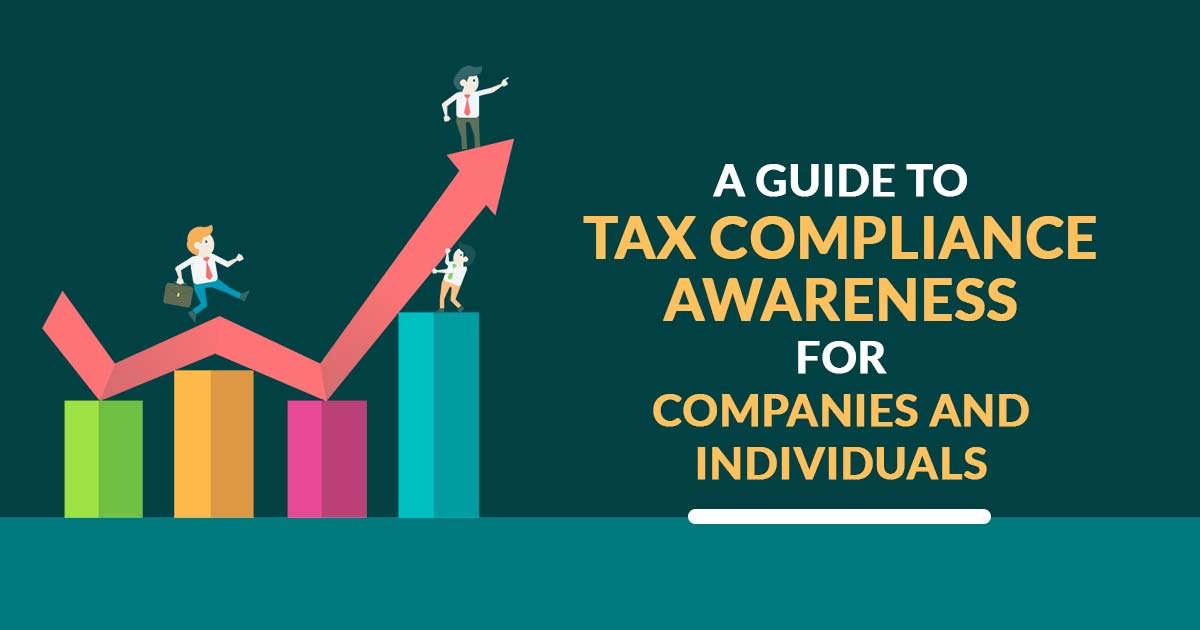
Businesses are required to act quickly to boost understanding of tax compliance. Here are a few most important points you can take to make sure your business complies with all tax laws. Taxes form an integral aspect of life for the majority, whether as part of the public grappling with tax forms or as professionals aiding others in meeting their tax responsibilities.
Ensuring tax compliance is vital for a smoothly operating society, and it’s equally crucial to promote understanding and knowledge about it. This piece aims to delve into effective methods for educating and involving both the public and tax professionals in the complexities of tax compliance. Join us on this journey towards comprehension and increased awareness.
What are the Different Points of Tax Compliance Awareness?
In the below, we have mentioned some points that must be taken during tax compliance awareness by companies and individuals:
Learning Tax Compliance
Tax compliance involves following a country’s tax laws and regulations, encompassing accurate income reporting, tax deductions, and timely tax payments. While the process might seem overwhelming, breaking it down into manageable steps can enhance comprehension.
Responsibility of Tax Professionals
Tax professionals, including accountants and tax advisors, serve as indispensable guides for individuals and businesses navigating the complexities of tax compliance. Emphasizing the significance of seeking professional assistance is crucial for a more streamlined and effective tax journey.
Encouraging Academic Companies
Fostering tax literacy stands as a fundamental goal. Achieving this can be done through educational initiatives, both within academic settings and via accessible online resources. Crafting engaging and easily understandable materials is essential in enabling individuals to grasp the basic principles of taxation.
Tax Professionals Complexity
The complexity and frequent alterations in regulations often make tax compliance appear daunting to many individuals. To effectively raise awareness, it’s essential to recognize and tackle these challenges, offering solutions that demystify the process.
Using Technology to Relieve Tax Compliance
In the contemporary digital era, technology plays a pivotal role in simplifying tax compliance. It’s important to underscore the significance of tax software, applications, and online platforms designed to aid in tax calculations and return filings. Illustrating how technology can be an ally, rather than an adversary, in the tax process is key.
Implication of Tax Compliance
Adhering to tax obligations serves as the foundation of any nation’s economy. It ensures that the government can furnish crucial services such as education, healthcare, infrastructure, and more. Failure to comply can result in financial tax penalties, legal issues, and a weakened societal framework. Understanding the significance of tax payment and its role is pivotal.
Boosting Tax Literacy
Encourage individuals to inquire and actively seek information to raise awareness. An increased understanding of taxes enhances the likelihood of voluntary compliance. Continuous tax education is crucial to ensure everyone remains well-informed.
Society Meetings and Workshops
Conduct local workshops along with seminars in which the tax professional could able to address the circumstances and questions. Such occasions could furnish a chance for people to obtain direct guidance.
Evaluating the Significance of Awareness Efforts
Evaluating the effectiveness of your awareness initiatives is critical. Consider metrics like heightened tax filings, minimized errors, and enhanced tax knowledge. These statistics are instrumental in refining your strategies.
Cooperative Actions in Extending Awareness
Synergizing the efforts of government agencies, non-profit organizations, and the private sector can foster powerful awareness campaigns. Collaborative endeavours have the potential to reach a wider audience and yield a more significant impact.
Support Power of Social Media Platforms
Leverage the power of social media platforms to reach a broad spectrum of individuals. Utilize these platforms to disseminate tax advice, address common queries, and generate interactive content that both captivates and educates.
Closure: To conclude, advocating for tax compliance isn’t solely a duty but a crucial requirement. Both the public and tax experts must be adequately educated to maintain an equitable and operational tax structure. Through simplifying tax principles, leveraging technology, and fostering collaborative efforts, we can enable individuals and businesses to meet their tax responsibilities with assurance.
Top FAQs About Tax Compliance Awareness
Q.1 – What are the consequences of not adhering to tax regulations?
Failure to comply with tax regulations may result in penalties, fines, and legal ramifications. Understanding and meeting your tax obligations is crucial to prevent encountering these complications.
Q.2 – How can I keep up-to-date on changes in tax laws?
Remaining updated on alterations in tax laws can be daunting, but subscribing to government newsletters, monitoring credible tax-related websites, and seeking advice from tax professionals can aid in staying informed.
Q.3 – Could there be tax deductions I haven’t considered?
Certainly, individuals frequently miss out on potential deductions. Engaging with a tax professional can assist in identifying deductions relevant to your specific circumstances.
Q.4 – Is it necessary to hire a tax professional to file taxes?
Although it’s feasible to file taxes independently, employing a tax professional can ensure accuracy and potentially uncover overlooked deductions.
Q.5 – How can I promote tax awareness within my community?
You can arrange informative workshops, share relevant content on social media platforms, and encourage others to seek out tax-related information. Being an advocate for tax awareness in your community can have a meaningful impact.
Raising awareness about tax compliance is an ongoing endeavour that benefits all. By equipping individuals with knowledge and resources, we foster a more informed and tax-compliant society, thereby bolstering our communities and nations.
It’s important to recognize that tax compliance isn’t just an obligation; it’s a civic responsibility that contributes to the greater good.